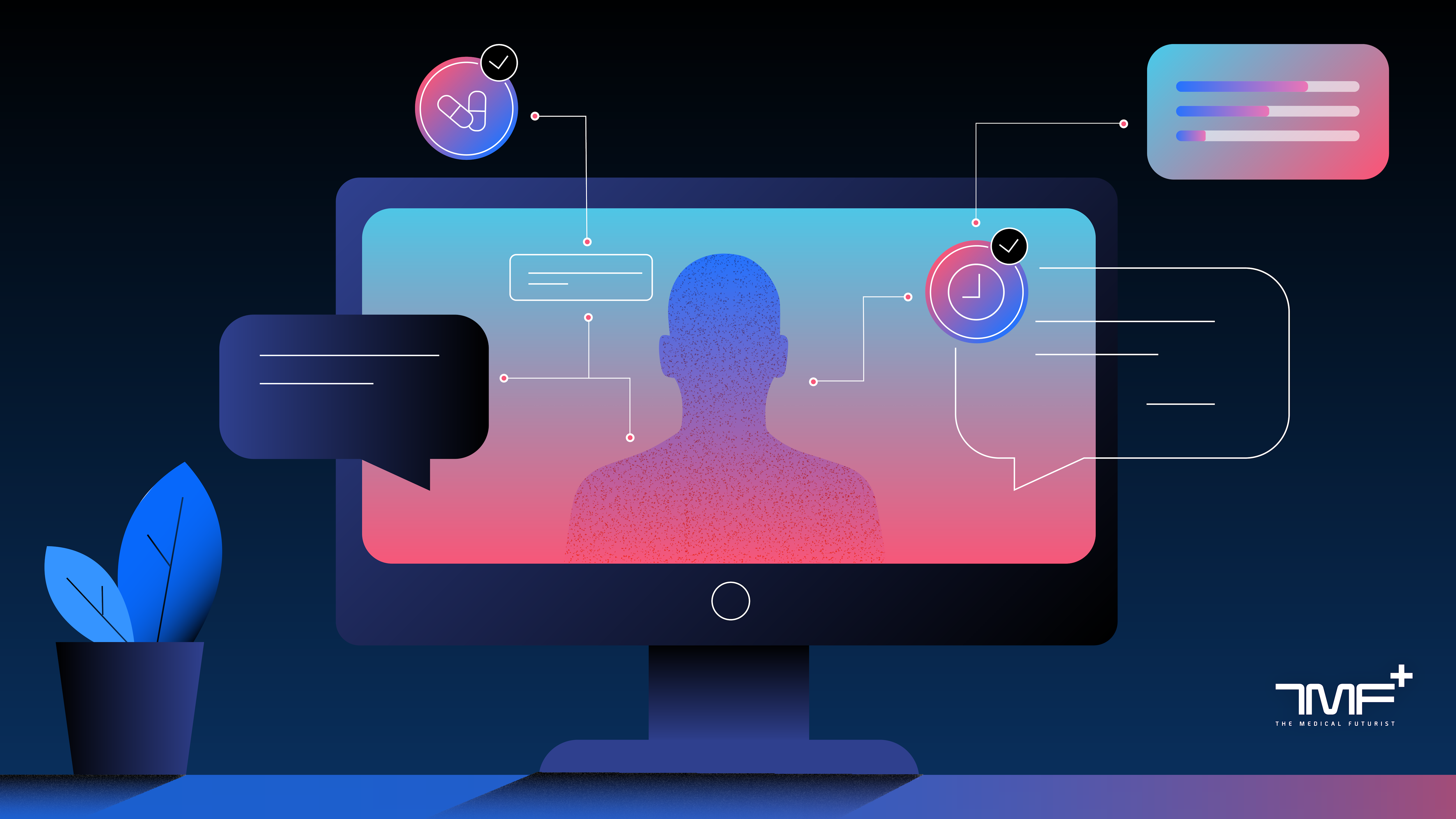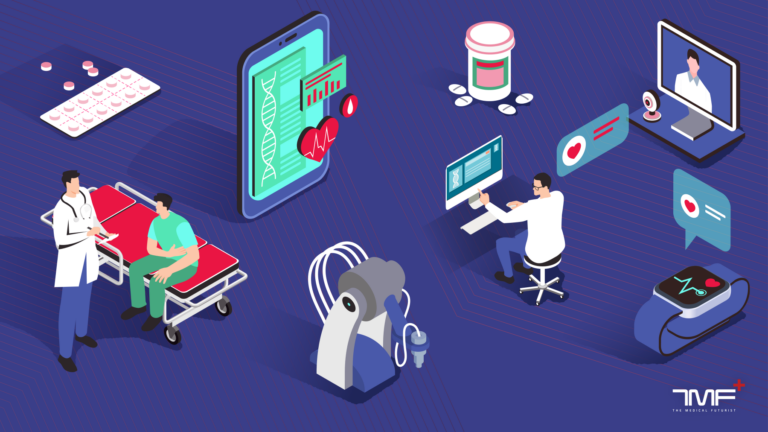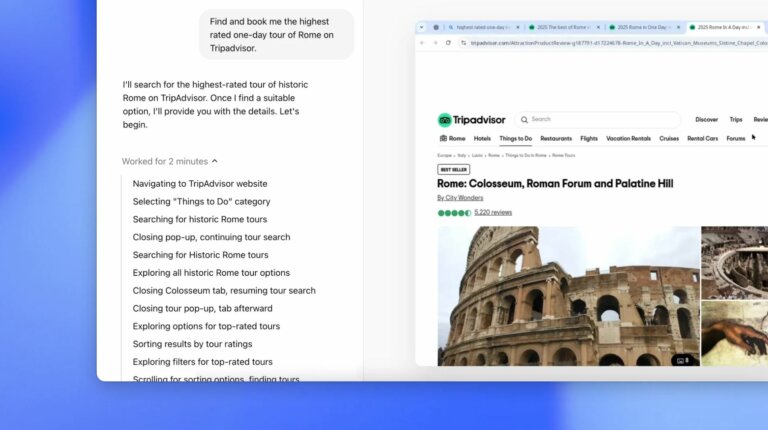Information
| The Medical Futurist 5 min | LinkedIn Twitter Youtube Facebook Instagram What is the hype behind AI agents? Is it just new technobabble or is it transformative technology? And what to expect from AI agents in healthcare? We address these questions and more in this article. 5 min | 3 March 2025 The tech industry’s latest fascination is artificial intelligence (AI) agents, tools that can automate tasks on behalf of the user. AI agents for healthcare purposes are already on the market and can perform tasks such as appointment booking, medication refills and referral workflow management. We can expect the technology to mature over time and we consider its potential impact and barriers to integration in the healthcare sector in this article. In early 2025, OpenAI started to roll out its latest product, Operator, an artificial intelligence (AI) agent that can perform online tasks on behalf of the user. Major players in the AI space like Google and Anthropic also have their AI agents in this new technological race; and it’s even expected that over 80% of organisations will integrate the technology in their midst within the next 3 years. So what is the hype behind AI agents? Is it just new technobabble or is it transformative technology? And what to expect from AI agents in healthcare? We address these questions and more in this article. In simple terms, an AI agent is a tool that can perform tasks on behalf of humans. On the surface, AI agents sound similar to AI assistants such as Siri or Google Assistant. However, AI agents rely on more complex algorithms to perform multi-stage tasks autonomously according to the user’s request. Rather than a simple rebranding of AI assistants, it might thus be more appropriate to consider them as super-charged AI assistants. “Unlike today’s bots, which mainly respond to input, agentic AI can be capable of planning ahead, prioritizing tasks, and executing complex workflows with minimal human intervention,” Jim Rowan, head of AI at Deloitte Consulting, explained to ZDNET. For example, OpenAI’s Operator relies on a new model called Computer-Using Agent (CUA) that combines GPT‑4o’s vision capabilities with advanced reasoning through reinforcement learning. It has been trained to “see” and “interact” with on-screen features such as buttons, menus and text fields, and undertake adequate actions based on a user prompt. In healthcare, such an AI agent could run through prescriptions, identify any adverse effects based on the patient’s history, make adequate changes and order the appropriate drugs. However, the vision for true agentic systems lies beyond clicks, scrolls and text input. Current tools like Operator are still in their early stages and can encounter challenges with tasks such as creating slideshows or managing calendars. The ultimate aim is likely that of truly autonomous and independent AI agents which are interoperable across systems and anticipate user needs. The technology will evolve to adopt more of these roles, and we consider their potential healthcare contributions in the next section. Even if the hype around AI agents has only recently been building up, there are already companies that offer such tools for healthcare purposes. Innovacer has released a suite of AI agents aimed at reducing administrative burden. They can automate tasks such as patient appointment booking, referral workflow management and routine patient inquiry support. Another company, Eleos, has developed an AI agent to assist in mental health sessions. By running in the background, it provides proactive insights to assist clinicians in analysing their patients and also in identifying documentation errors. AI company Amelia provides bespoke AI agents for healthcare that can automate tasks such as scheduling and managing appointments, patient payments and medication refills. Their solution has been used to deploy MUSC Health’s AI Agent for patients to manage their appointments and get answers to non-clinical questions. As agentic systems mature over time, we can expect them to handle tasks beyond administrative ones and have cross-discipline uses. They will be able to draw insights from diverse data sources such as past medical records, test results and medical scans. From these, advanced AI agents will further indicate potential diagnoses, recommend specific tests, book the adequate appointment, and suggest treatment pathways while taking into consideration potential allergies and side effects. They could take it one step further by guiding patients along the way with tasks such as medication and appointment reminders. We might be a long way from fully autonomous AI agents in healthcare as described in the previous paragraph. Instead, we are more likely to experience more contained agentic systems focused on automating repetitive, administrative tasks in the near future. These could evolve into multi-agent systems where several AI agents interact with each other as they move towards more advanced, “all-in-one” agents. Moreover, deploying such tools in the healthcare space will come with a number of challenges that range from financial hurdles to ethical concerns. “Implementing AI agents can be costly,” Deloitte’s Jim Rowan told ZDNET, and highlighted the need for adequate data infrastructure. “These necessary systems include scalable cloud platforms, advanced data analytics tools, and robust cybersecurity measures.” Furthermore, the recent concerns brought to light by the advent of generative AI also apply to the case of AI agents. In fact, a report from Deloitte notes that the complexity of agentic systems makes barriers such as regulatory uncertainty, risk management, and data deficiencies more important. Even among those interested in adopting AI agents, there is a general sense of caution. For instance, at The Wall Street Journal’s CIO Network Summit, attended by major US information-technology leaders, attendees expressed concerns about cybersecurity, data privacy, and the lack of reliability when it comes to AI agents. By having AI agents automate healthcare-related processes, clinicians will have to be ensured of the reliability of their output while also maintaining its validity with human supervision. The use of such tools should further adhere to strict data privacy regulations. Only by undertaking such measures can we expect our healthcare experience to be aided by AI agents. Written by Dr. Bertalan Meskó & Dr. Pranavsingh Dhunnoo Privacy Policy We use cookies to tailor your experience, measure site performance and present relevant advertisements. By clicking on 'Accept all' or any content on this site, you agree that cookies can be placed. You can view our policies or manage your cookies here.


